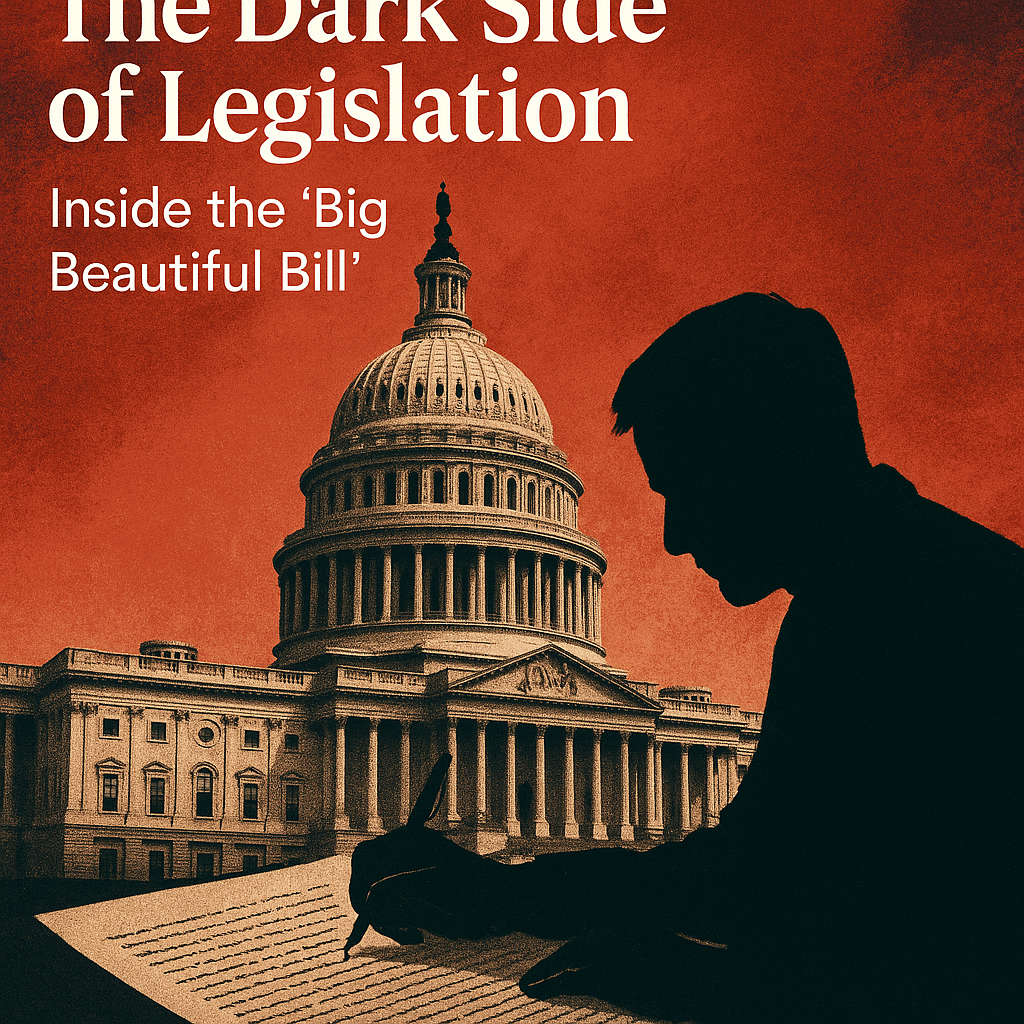“How Congress Really Works: John Kiriakou Exposes the Game Behind the Bills”
Here’s a full blog article based on the interview with John Kiriakou on the Danny Jones YouTube channel, focused on how U.S. legislation is manipulated and used for political maneuvering: -Rafael Benavente

Here’s a full blog article based on the interview with John Kiriakou on the Danny Jones YouTube channel, focused on how U.S. legislation is manipulated and used for political maneuvering:
Inside the “Big Beautiful Bill”: John Kiriakou Unpacks How Washington Really Works
By Rafael Benavente
Former CIA officer and whistleblower John Kiriakou has seen the inner workings of government from multiple angles—both in intelligence and on Capitol Hill. In a compelling interview with Danny Jones, he offers a candid, and at times humorous, look into how legislative sausage gets made in the U.S. Congress.
At the center of the discussion? A 1,600-page omnibus bill unofficially dubbed “the big beautiful bill”—and what it reveals about political gamesmanship in Washington, D.C.
What Is the “Big Beautiful Bill”?
Nicknamed by insiders, the “big beautiful bill” was a massive, all-encompassing piece of legislation jam-packed with pet projects, political traps, and last-minute amendments. Kiriakou explains that these kinds of bills are strategically constructed to bypass debate and force passage using budgetary loopholes—a process known as budget reconciliation.
Why does this matter? Because under Senate rules, you need 60 votes to pass a normal bill and override a filibuster. But budget-related bills only need 51 votes, meaning a party with a slim majority can pass sweeping legislation without bipartisan support—so long as they label it part of the federal budget.
Political Booby Traps: “You Don’t Care About Veterans?”
Kiriakou dives into one of Washington’s most cynical tactics: combining unrelated items in the same bill to weaponize votes against the opposition.
For example, if a legislator is against selling public lands or increasing surveillance, but that clause is paired with funding for homeless veterans, the media can now say:
“Senator X voted against helping homeless veterans.”
This isn’t a bug—it’s the system working as designed, engineered to win political points while avoiding real scrutiny.
The “Perverted Arts” and the Simpsons Parallel
In one hilarious moment, Kiriakou likens the legislative process to a scene in The Simpsons Movie, where Congress sabotages a humanitarian bill by tacking on a bizarre amendment to fund “perverted arts.”
Though funny, the reference highlights a painful truth: important legislation often dies because of intentional sabotage through absurd or unpopular amendments.
Kiriakou notes that members of Congress often don’t even have time to read what they’re voting on. In this case, Democrats insisted the bill be read aloud in full—taking 16 hours—just to delay a vote and draw public attention to what was being hidden.
The Budget Loophole and Why It Matters
Kiriakou explains a little-known legislative trick: if a bill is tied to the federal budget—even if only loosely—it can bypass the 60-vote requirement in the Senate. This turns budget reconciliation into a Trojan horse for all kinds of unrelated legislation.
Senators exploit this loophole to slip controversial policies into law, knowing the opposition can’t filibuster. The result? A political arms race of shady insertions and toxic combinations.
The Conference Committee Maneuver
Usually, when the House and Senate pass different versions of a bill, it goes to a conference committee—a bipartisan group that negotiates a unified version. But in this case, things were too close.
Kiriakou reveals that Speaker of the House simply accepted the Senate version without changes, fearing that if the bill returned to the House, even a couple of flipped votes could kill it.
This bypass of standard procedure—though technically legal—exposes just how desperate parties become when margins are razor-thin. In this case, the Republicans held the slimmest House majority in American history—just three seats. Losing even two votes meant legislative collapse.
Public Land for Sale? Section 8 Sparks Uproar
Kiriakou also touches on a bizarre plan to sell vast amounts of public land out West, originally justified as a way to fund affordable housing (Section 8). The idea, endorsed by Rep. Hakeem Jeffries, sparked instant backlash from both ends of the political spectrum—especially hunters, conservationists, and rural voters.
Even Republican senators, usually open to land deals, killed the proposal once it became clear the plan was to use proceeds to build public housing. The political messaging practically wrote itself: “They’re paving over your hunting grounds for Section 8 apartments.”
Congressional Confusion Is Intentional
Danny Jones expresses frustration at how difficult the legislative process is to understand—and Kiriakou agrees. It’s designed that way.
“Confusion forces negotiation,” Kiriakou says. But in today’s hyper-partisan Congress, that confusion leads to exploitation instead. Rather than fostering compromise, it becomes a weapon used by both parties to jam through hidden agendas.
Final Thoughts: The System Isn’t Broken—It’s Working Exactly as Intended
John Kiriakou paints a picture of a Congress that isn’t malfunctioning—it’s running exactly the way political elites want it to: opaque, chaotic, and manipulable.
Bills like the “big beautiful bill” are engineered to:
- Avoid real debate
- Hide controversial measures
- Trap opponents in bad votes
- Pass with minimal oversight
If this interview teaches us anything, it’s that civic literacy is the first line of defense. Because if we don't understand how laws are passed, those in power can do just about anything behind a smokescreen of procedure.
Credits:
Special thanks to Danny Jones, host and producer of the Danny Jones Podcast, for conducting the original interview with John Kiriakou. You can watch the full conversation and explore more thought-provoking content on his official YouTube channel: Danny Jones.
Follow and support his work for more deep-dive interviews on politics, government, and global affairs.
